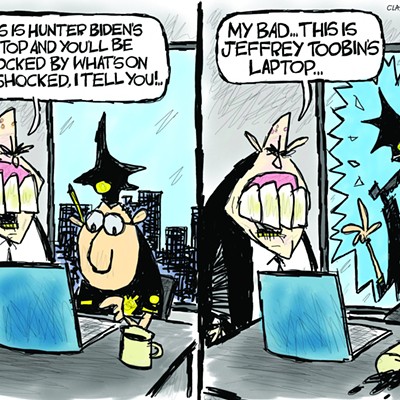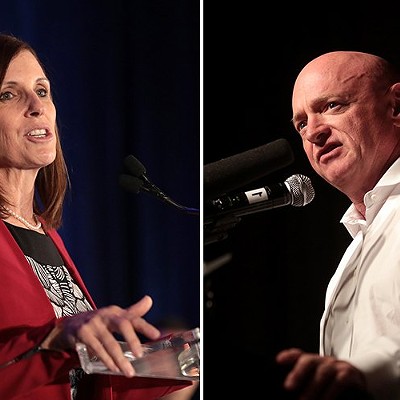When we discovered the thick black gunk that had been buried in the earth for more millennia than imaginable, we began a process that mortgaged our future to the global petrogarchy while placing the Earth's climate in peril.
As we forged a culture around oil, we replaced the founders' ideal with a manufactured American dream promising an endless abundance of cars, homes, boats, radios, stereos, appliances, televisions and later computers, DVDs, iPods and Blackberries--and this is just the tip of the melting iceberg. If there were voices telling us our insatiable appetites were not sustainable, we weren't hearing them.
Dr. James Hansen, a physicist and NASA climate scientist, spoke last month before the House Select Committee on Energy Independence and Global Warming. Hansen has issued climate-change warnings for more than 20 years. His only regret, he told The New York Times, is "that we haven't gotten the story across as well as it needs to be. And I think we're running out of time."
He told the committee: "The safe level of atmospheric carbon dioxide is no more than 350 ppm (parts per million) and it may be less. (The) carbon dioxide amount is already 385 ppm and rising about 2 ppm per year. Stunning corollary: The oft-stated goal to keep global warming less than 2 degrees Celsius (3.6 degrees Fahrenheit) is a recipe for global disaster, not salvation." The full text of his comments is available online.
Dr. Jonathan Overpeck, director of the UA's Institute for the Study of Planet Earth, agrees the situation is dire. In a recent e-mail, Overpeck wrote, "Jim Hansen is certainly one of the very top climate experts in the world, and I always take what he says about the Earth's climate system seriously. I also worry that he is correct, and I think his call to urgent action on the part of the U.S. government should be heeded. Our country needs to lead the international community in a rapid and large-scale reduction in atmospheric greenhouse gas pollution before it is too late. We don't know exactly when it would be 'too late,' but as Hansen says, it could be soon. It is prudent to act now, particularly if our goal is to safeguard the Earth for future generations, and also to reduce the economic, human and security costs that current generations will have to pay as we deal with climate change in coming decades."
By leading the world in weaning ourselves off fossil fuel, Overpeck says the United States has the opportunity to "develop entirely new economic engines that will make the 21st century one of great human achievement, rather than the century of doom and gloom that--as Jim Hansen warns--could befall us if we fail to act quickly and decisively."
We are at or very near peak oil. If we pursue more carbon-based fuels to feed our voracious appetites, we will ensure accelerated global warming as more CO2 pours into the atmosphere. More CO2 will hasten the pace of glacial melt that in turn will quicken the rate that methane is released into the atmosphere, thus exacerbating climate change.
Which means weather events leading to disasters such as the recent Midwest floods will become more frequent and more severe. Unlike those in a natural landscape, the Midwest floods are contaminated with "everything that's been washed out of sewer plants and garages, basements, businesses, manure. It's bad. We honestly don't know what all is in it, but it's an absolute witch's brew," an environmental specialist told The New York Times.
He did not mention the pesticides, fertilizers and other chemicals flowing downriver, chemicals that are no more of a witch's brew than is a margarita: All the contaminants are those of our own making. The only brewing being done is that in the labs of chemical companies.
Maybe, if we're lucky, we've reached our collective tipping point and are ready to kick the habit. As we throw off the yoke of fossil fuels, our Carbon Age may go the way of the Bronze Age, and our actions lead to genuine independence.






